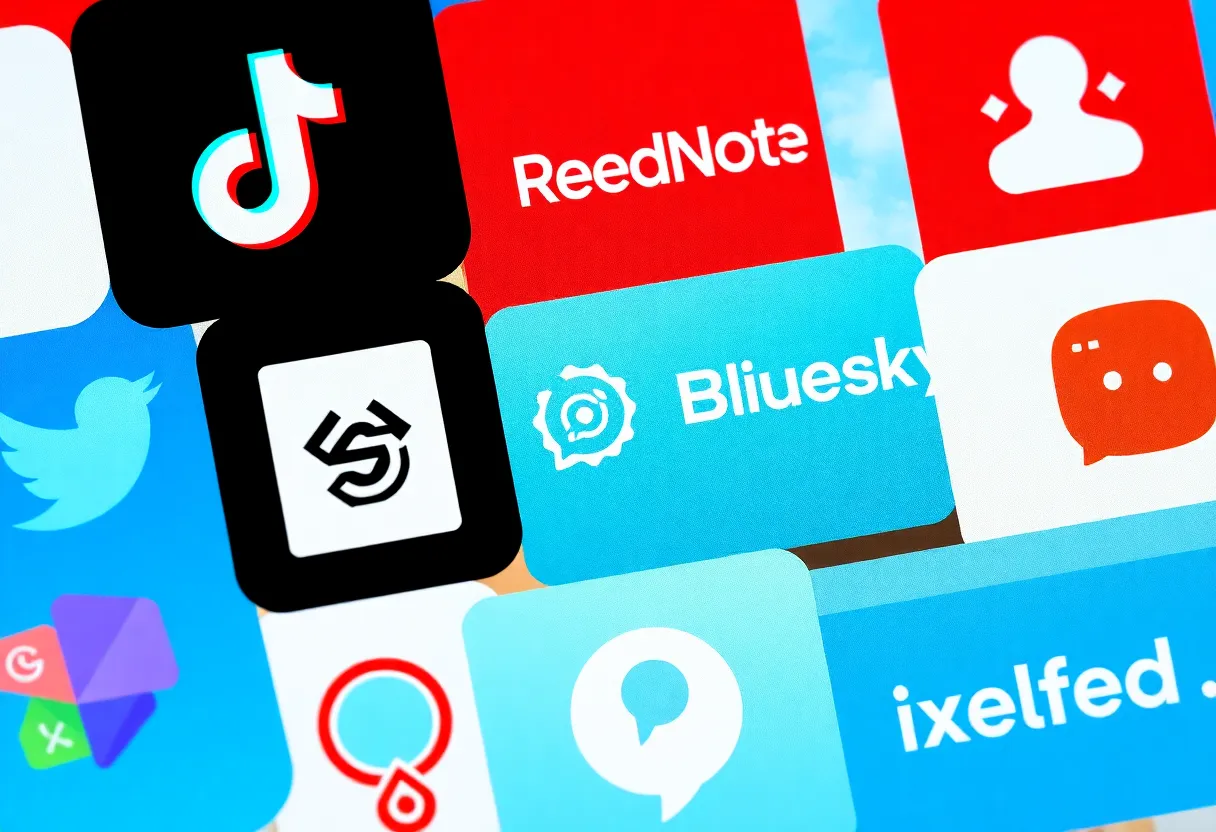News Summary
The social media landscape is shifting dramatically as TikTok faces uncertainty following a Supreme Court ruling. Users are exploring alternatives like RedNote and Bluesky amidst rising privacy concerns, while TikTok’s future remains unclear. The trend signals a growing demand for community control and privacy in digital spaces.
Big Changes in Social Media World: TikTok Users on the Move!
January 18, 2025, was a rollercoaster day for TikTok users in the United States—a day that began with uncertainty and ended with a flurry of activity. Many users found themselves startled when TikTok briefly stopped working after a Supreme Court ruling upheld legislation that would require its Chinese parent company, ByteDance, to sell the app. Talk about a cliffhanger!
The Quick Comeback
Just when users thought they’d have to say goodbye to their beloved platform, TikTok turned the tables by restoring its service within 12 hours. They even claimed that the quick turnaround was thanks to _Donald Trump’s efforts_. Mixed reactions rolled in—some were relieved, while others felt a twinge of distrust. The uncertainty left many users feeling anxious about the platform’s future.
A New Contender: RedNote
Interestingly, in the lead-up to the TikTok showdown, over users were already on the lookout for alternatives, signing up for a Chinese app called RedNote. This app, known as Xiaohongshu, has made waves among new users who merrily dubbed themselves “_TikTok refugees_.” Initially launched in 2013 as a product review and e-commerce platform, it’s morphed into an interesting blend of _Pinterest_ and TikTok, featuring a “For You” page that curates content to match user interests.
However, would-be users should remember that _RedNote hasn’t yet translated its terms of service into English_. For those navigating in a foreign language, a Google translation reveals that the app can use personal images, names, and other marketing materials without paying or compensating users. Talk about raising an eyebrow!
Concerns About Privacy
This lack of clarity raises significant concerns. Users are wary of RedNote’s stringent data collection practices and strict censorship policies, which ban everything from political discussions to LGBTQ+ content. As if content moderation wasn’t tricky enough already!
Emerging Alternatives
Meanwhile, the social media landscape is bustling with alternatives, with Bluesky sailing upwards, registering more than users already. Many are attracted to its decentralized operation, which offers a refreshing change to users who are concerned about privacy.
There’s also Pixelfed, the open-source image-sharing platform that’s been gaining traction. Users love its ad-free experience and respect for privacy. You can even create your own servers—just a little something for those who love a sense of control over their online space.
Then there’s Cara, which launched in 2022 and sported a swift rise in popularity as users protested AI content generation. With features like “Glaze,” Cara aims to protect artists’ works from generative AI models—a neat touch in today’s increasingly tech-driven landscape.
Seeking Privacy
The desire for privacy and community governance seems to be pushing many users toward these new open-source social media options. Users express a strong wish to escape the clutches of big names like X (formerly Twitter) and Instagram, looking instead for more community control and privacy.
As legislative scrutiny continues over TikTok’s influence and its ties to the Chinese government, the app’s uncertain future looms large, particularly for the U.S. business environment. TikTok has served as a vital platform for millions of small businesses, generating around _15 billion dollars_ in revenue. Should it face a full-blown ban, approximately _2 million content creators_ in the U.S. might see their income streams dry up.
Looking Ahead
The winds of change are strongly blowing in the social media landscape. As users weigh their options amidst this uncertainty, it will be exciting to see how these new platforms evolve and how established ones respond. The message is clear: people want control over their digital lives, and they won’t settle for anything less!
Deeper Dive: News & Info About This Topic
HERE Resources
Growing Pains: The Disconnect Between CMOs and CEOs
Exciting Changes for Investment Advisers: SEC Issues New Guidance on Performance Metrics
Getting Started with Affiliate Marketing: A Friendly Guide for Beginners
Exciting Developments at Deviate Digital: New Hires and Promotions
Unilever’s Innovative Leap into AI and Digital Twins
Generative AI: The New Star of Marketing
Exciting New Changes Coming to the SEOST Digital Marketing Conference!
Community Reimagines Ramadan Traditions Through Food Rescue
FCC Investigates Disney’s Diversity Practices
Elon Musk’s xAI Acquires X for $33 Billion in All-Stock Deal
Additional Resources
- Hyperallergic: Social Media Alternatives
- Wikipedia: Social Media
- Forbes: Open Source and Ethical Alternatives
- Google Search: TikTok alternatives
- Business.com: TikTok Alternatives
- Encyclopedia Britannica: TikTok
- Clearance Jobs: Alternative Social Media Platforms
- Google News: Alternative Social Media Platforms
- New York Times: Decentralized Internet
- Google Scholar: Decentralized Social Media








